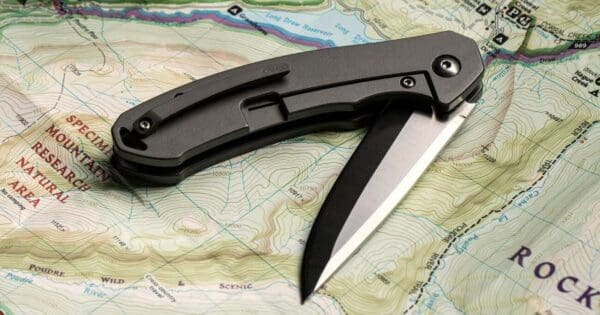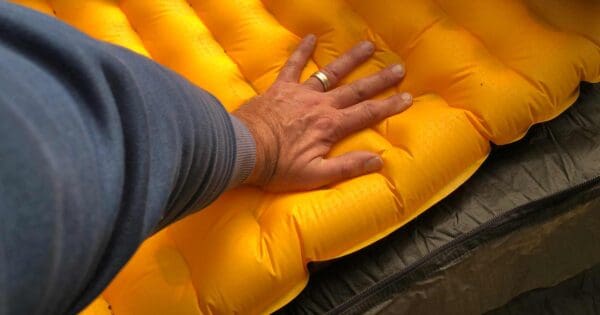If you’re looking for solar panels specifically designed for hiking and outdoor activities, you’ll want to consider portable and lightweight options that are easy to carry and rugged enough to withstand outdoor conditions. Here are a few key things to keep in mind when selecting solar panels for hiking.
Solar panels – Lightweight, portable and compact
When heading out on a hiking adventure, particularly overnight and multi-day hikes, every ounce counts. Portable solar panels designed explicitly for outdoor activities are lightweight and compact, ensuring easy portability in your pack. Foldable or rollable panels are popular choices as they can be folded into a smaller form for convenient storage and transportation. Look for panels that strike the right balance between power output and size, offering optimal performance without weighing you down.
Power output
The power output of the solar panel is a crucial factor to consider. It determines how quickly and efficiently your devices will be charged. Assess your power requirements and choose a panel with an appropriate wattage to meet your needs. Keep in mind that higher wattage panels will charge devices faster but may be larger and heavier. Striking a balance between power output and weight is essential.
Efficiency
Efficiency is a vital consideration when selecting hiking solar panels. It refers to how effectively the panels convert sunlight into usable electricity. Higher efficiency panels will generate more power with the same amount of sunlight, making them an excellent choice for charging your devices efficiently. Look for panels with higher efficiency ratings, typically indicated as a percentage, to ensure you get the most out of the available sunlight.
Durability
Outdoor adventures expose your gear to rugged conditions, so durability is paramount when choosing hiking solar panels. Ensure that the panels are designed to withstand water splashes, dust, and potential impact. Look for features like reinforced frames, sturdy materials, and water-resistant or waterproof designs. Robust construction will ensure the longevity of your solar panels, allowing them to endure the demands of outdoor exploration.
Compatibility
Check the compatibility of the solar panels with your devices. Ensure they have the appropriate output ports or come with adapters to charge your specific devices. Most hiking solar panels feature USB ports for easy connectivity with smartphones, GPS devices, cameras, or portable chargers. Some models may offer additional compatibility options, such as DC outputs for charging laptops or other devices with specific requirements.
Charging options
While sunlight is the primary source of power for solar panels, some models offer additional features to extend their usability. Look for panels with built-in batteries or power banks that store the energy for later use. This allows you to charge your devices when sunlight is limited or during nighttime hours. These integrated power banks can be a valuable backup, ensuring you have power even in less sunny conditions.
Solar panel accessories
Consider additional accessories that can enhance the usability and convenience of your hiking solar panels. Features like carabiners or attachment points make it easy to hang the panels on your backpack, tent, or any other suitable location to capture sunlight. USB ports and cables should be included for effortless device connectivity. Some panels may also come with integrated LED lights, providing illumination during camping trips or emergencies.
When shopping for hiking solar panels, it’s recommended to read reviews and compare different models to find the best fit for your needs.
Are solar panels reliable?
This is a question often asked. Relying solely on solar panels for all your power needs during your hiking adventures is a decision that requires careful consideration. While solar panels can be a valuable and sustainable power source, there are certain factors to keep in mind:
- Sunlight availability: The effectiveness of solar panels depends on the availability of sunlight. If you’re hiking in regions with frequent cloud cover or dense forested areas, the panels may not receive sufficient sunlight to generate significant power. Therefore, it’s essential to assess the sunlight conditions of your hiking destination and plan accordingly.
- Power output: The power output of portable solar panels is limited compared to traditional power sources. It’s crucial to manage your power consumption effectively and prioritise the charging of essential devices. Consider the wattage and efficiency of the panels to ensure they can meet your power requirements.
- Backup power: While solar panels can provide a sustainable source of energy, it’s always prudent to have a backup power plan. Carrying additional power banks or portable chargers can offer an extra layer of security, especially during extended hikes or in situations where sunlight may be limited.
- Charging time: Solar panels require sufficient exposure to sunlight to charge devices effectively. The charging time can vary depending on factors such as panel efficiency, available sunlight, and device power requirements. It’s important to be patient and plan your charging needs accordingly to ensure you have enough power when you need it.
- Device compatibility: Not all devices may be compatible with solar panels or may require specific adapters. Before relying on solar panels, ensure that your devices can be charged using the panel’s output ports or adapters. It’s advisable to check compatibility in advance and carry any necessary accessories.
- Environmental conditions: Hiking exposes equipment to various environmental conditions, including rain, dust, and potential impact. While many hiking solar panels are designed to withstand outdoor conditions, it’s important to handle them with care and protect them from excessive moisture or physical damage.
Relying solely on solar panels for hiking power needs is possible but requires careful planning, assessing sunlight availability, managing power consumption, and considering backup options. Solar panels can be a valuable and eco-friendly addition to your hiking gear, but it’s always wise to have contingency plans and backup power sources to ensure a reliable and uninterrupted power supply during your adventures.





